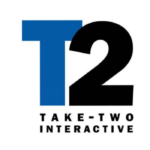A highly engaged workforce is not only more productive, but can drive higher levels of customer satisfaction, profit and shareholder returns. There is a clear link between learning culture and engagement. However, despite millions of dollars being spent on learning and development, corporations are failing to really engage their people. This indirectly impacts customer satisfaction, profit, revenue growth and productivity year after year.
Given the shifting demographics and expectations of the workplace, and the generation of millennial employees impacting learning engagement, measurement of learning impact is becoming more important than ever. In fact, it is primary in the new world of work.
Organisations seeking to attract and retain millennials, and meet the needs for continual learning across the workforce, will have to shift from traditional training methods to more dynamic and collaborative learning formats. They will also have to deliver content in a fun and engaging way, with relevant facilitation tools in small, easily-consumable bit-sized chunks.
Nurturing facilitation skills in your learning programmes will ensure increased learning, better results and engaged participants. It will involve and engross people, delight customers and improve retention.
It’s time that we start measuring our training metrics on the following two fundamental criteria, which can give big return on investment:
· Number of hours facilitated (there is a difference between facilitating and training)
· Transfer the learning to work, with relevant action learning projects, and measure the impact.
The best way to monitor the impact of the projects is to co-create with the learners and with all key stakeholders using design thinking. Simply put, get each of the learners to understand what’s in it for them.
From our experience, when it comes to learning transfer, we have the following challenges to overcome:
· Managers do not support the learning
· Processes do not support learning
· Lack of opportunity to use the skills
· Paucity of time to implement the skills
· No relevant learning that can be applied to work
· Dearth of resources to implement the skills
· Absence of need to implement
· Lack of enthusiasm for the change
All the above factors can be addressed using the appropriate facilitation tools and methods during the discovery, design and delivery phase. The discussion questions should be with reference to ‘results’ and not ‘activities’.
Three discussion questions to help you start the conversation with your team are as follows:
1. Identify the programme linked to specific business needs.
2. Ensure the environment is prepared to support the programme.
3. Measure the reporting of the programme as output focused.
We at 60 Bits Consulting, feel that small changes can make a big difference. Just by asking the above three questions, you can make your learning more impactful and enjoy better results.
We all know adults prefer self-learning, learning from peers and learning by doing. To address adult learning, we use processes and creative facilitation tools for learning, engagement, application and retention at the workplace by simulating 70:20:10 in the programme.
The key is to create opportunities that simultaneously address high-priority business needs and provide personal development opportunities. The ability to push participants to reflect, while giving them actions that are doable in their real work context, and to apply new approaches and hone their skills, is a valuable combination that you can explore using facilitation tools and methods!
As the famous saying by Robert Kiyosaki goes, “If your business is to grow and prosper, as a leader, you need to focus on people development.”
After all, facilitation skills help speed up and enhance both the design and learning processes. The right facilitation skills can ensure increased learning, better results and more engaged participants.
Value our content... contribute towards our growth. Even a small contribution a month would be of great help for us.
Since eight years, we have been serving the industry through daily news and stories. Our content is free for all and we plan to keep it that way.
Support HRKatha. Pay Here (All it takes is a minute)




































